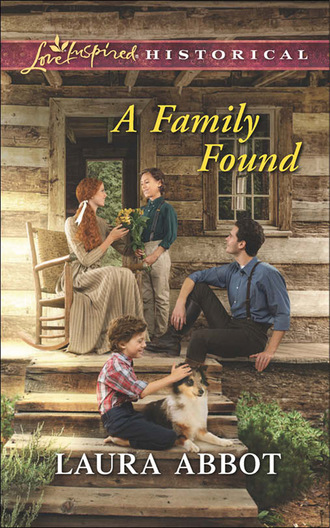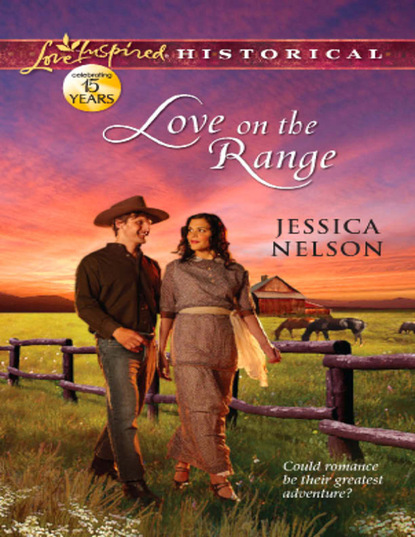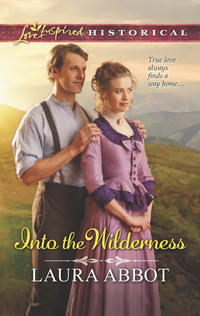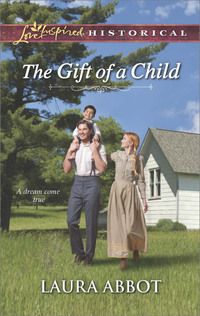
Полная версия
A Family Found
“Words have a life of their own, don’t they? Sometimes they just slip out when they should stay put. And you aren’t the first to accuse me of garrulousness.” She smiled ruefully, and he could breathe again.
“Nor will I be the last, I suspect,” he said with a forced chuckle.
Then she laughed gaily and relief flooded through him. “Do you know what I think? I have had quite enough of this Miss Montgomery and Mr. Lockwood business. You are my only friend in all of Estes Valley, and I would like you to call me Sophie.” She paused. “And might I call you Tate?”
His first thought was that this informality moved them into an intimacy he wasn’t sure he was willing to undertake, but his second thought trumped the first. “I would welcome that,” he said.
“All right, then, Tate. Take me home.”
He knew she meant her cabin, of course. Yet, for an instant, her words shook every nerve in his body. “Home...yes.” He raised an arm and pointed along the northern fringe of the valley. “Your cabin is over there, not too far from my ranch. We’ll stop at your place first.”
He wished he could cover the intervening miles in a flash. He needed to put distance between himself and this woman...this Sophie.
* * *
Sophie couldn’t let Tate see her disappointment. Furnished cabin? In the real estate flyer she’d been sent, that must have been a euphemism for one-room shack. Never in all her days had she seen such a structure, standing upright only through some act of God, shingles missing, chinks in the walls and dirt and animal droppings in abundance. She stood on the front porch taking in the mountain view. “At least this vista is lovely,” she said, shading her eyes against the sun dropping slowly behind the peaks.
“You can’t spend your life on the porch,” Tate muttered. “Would you like me to send one of my ranch hands over in the morning to help you muck out?”
She gathered her courage. “In the provisions they just unloaded, I have the necessary equipment. I would be much obliged if you could help me gather wood and get a fire started. Beyond that I have some tinned food that will keep me until I can get to baking, so you will be able to take your leave soon and get home to your sons.”
She could never admit to him how overwhelming the tasks before her seemed. The place was almost uninhabitable. She had never imagined she would have to start from scratch to turn this place into a home. Somehow she had pictured a snug cabin with perhaps a smattering of dust, but already equipped with a good bed and a sturdy stove, needing only a few touches and some elbow grease to make it hers. Now, with the sun disappearing behind the peaks, the sudden drop in temperature made a fire an even more immediate necessity.
Tate stood beside her on the porch, dwarfing her. “I’ll send the boys on home with the wagons while I help you with the fire.”
He left her, gave orders to his men and disappeared behind the lean-to that made do for a barn, where she had stabled Ranger.
She gathered some kindling, then went inside and busied herself swiping at cobwebs and sweeping ashes out of the woodstove. She vowed she would not cry, especially not in front of the man who called into question her every move. This task was similar to moving to Kansas and establishing their ranch. Her father had often reminded her and her brothers, Patience. One step at a time, one day at a time. She sniffled once, briefly indulging her self-pity. Then she returned to her labors, figuring that for this day, one stove and one bed would be reasonable steps. She could do this. She tried not to look at the bed, sagging nearly to the floor, the filthy mattress having served as home to who knew what.
She heard Tate’s heavy footsteps, followed by a loud thump. She opened the door. “Hidden treasure,” he said ironically, pointing at the logs he’d gathered. “A wood pile behind the barn. I’ll fetch some more.”
“I’ll come with you.” She hurried along behind him, grinning wryly at his use of the word barn to describe the ramshackle outbuilding.
Together they made four trips and stacked up a considerable amount of wood. “At least I won’t worry about you freezing to death,” Tate said when they were finished.
“I don’t want you worrying about me at all.”
“All right. I won’t.”
Why did that easy promise disappoint her? After all, she’d asked for it. “Fine.”
“There’s also a privy over by that grove of aspen.”
She was unable to make eye contact. “Useful information.”
“One last thing. Let me prime the pump that carries the water from the pond over yonder.”
She slumped. She’d been so busy bemoaning the state of her dwelling that she hadn’t even thought about water. So much for her foresight and self-sufficiency. Was her bravado merely a disguise for incompetence?
Satisfied that the pump worked, Tate stood in the door, preparing to leave. “Anything else?”
“Not that I can think of.” She looked into his eyes, reading concern. “I will be fine. I am grateful for the help.” She chuckled sardonically. “Perhaps I don’t know quite as much as I thought I did.”
“Or were sold a bill of goods by some unscrupulous agent.”
“No use crying over spilled milk. I’ll just make the best of what is, I confess, a disillusioning end to such a beautiful day.”
“Where is your rifle?”
She nodded to a corner. “Over there.”
“Load it and keep it with you.”
“That’s comforting,” she said.
“That’s reality.” He put on his hat and they moved onto the porch. “So now, while it may not be quite what you pictured, you’re home, Sophie. Do be wary.”
“Good evening, Tate. Once again, thank you for bringing me here.”
He glanced around. “That’s either irony or supreme gratitude.”
“Gratitude,” she murmured. “Now get along with you.”
Then he was off. She stood on the porch hugging herself for warmth, waiting until the last hoofbeats died away. She was alone in a way she had never been alone. The valley was still and the mountains loomed like sentinels. Tate’s absence swept over her, leaving her breathless. This was what she had wanted, wasn’t it? Solitude? Peace? God had given her this place to heal, and no matter what, she would honor His gift. Here she would, at last, begin a new life. Not one in which she ever forgot her beloved Charlie, but one of which she hoped he would approve...and one he would bless.
Turning to go inside, she looked up at the sky and gasped in wonder. Never had she seen such a canopy of stars. In that moment, a peace came over her as if God was delivering her from her personal wilderness.
Inside, as she threw the mattress aside and made herself a bed of pine needles and straw, she knew she would sleep like a baby. Tate was right. She was home.
Chapter Three
Wrapping a blanket around her shoulders the next morning, Sophie moved quickly to build up the fire and get water boiling. No friendly elves had appeared in the night to clean the place and dawn did nothing to improve the cabin, but a deep sleep and the satisfaction of arriving at her destination had restored her optimism. She thought of her father, whose life as a widower with three small children couldn’t have been easy. Start in a corner and work your way out, he always said when faced with a daunting situation. That was exactly what she would do. While she waited for the kettle to heat, she filled a pail with cold water from the pump, added some baking soda and began scrubbing the layers of dust from the crude cupboard shelves and scarred pine table. Later she would go over the surfaces with boiling water. Other chores could wait, but if she was to eat, the kitchen had to be attacked first.
When the sun crested the ridge, Sophie donned her coat, slipped a knife in her pocket and went to the barn. Ranger whinnied in recognition and nosed her shoulder. “Good morning, fella.” She caressed his neck. “Ready to eat?” She cut open the bag of oats, poured a generous amount into the feed bucket and pumped water into a trough, grateful that some previous owner had had the foresight to put a pump here as well as in the cabin. She surveyed the building and small fenced corral. It would do for now.
The morning passed swiftly, and by noon she felt reasonably satisfied about her progress. Bread dough was rising, and the food sacks and tins had all been stowed away. She eyed the sturdy broom in the corner. This afternoon she’d sweep and scrub the floor before beginning repairs on the dilapidated furniture. Somehow, she vowed, she’d make the place not only habitable, but homey.
She carried a mug of fresh coffee out onto the porch, taking a moment to soak in the glorious view. No matter the state of her cabin, she knew this panorama of meadow and mountain would nourish her soul. In the quiet she heard the trickle of the nearby stream that fed into the pond. She looked heavenward. “Charlie, do you see me? Even though this isn’t where we imagined being, for the first time since you left this earth, I sense you all around me.”
The sun warmed her as she reflected on the people who had brought her to this time and place. Her family, of course. The dear Hurlburts. Even Tate Lockwood. Beneath his all-business exterior, she sensed an innate kindness he seemed to prefer not to expose. His warnings to her suggested a protective nature, as did his act of supplying the buffalo robe. In some ways, he reminded her of her father—both of them men rearing young children alone.
Later, on hands and knees scrubbing the rough pine floor, she admitted it was going to take more than this one day to put the furniture to rights and refurbish the cabin. The windows needed cleaning, the dresser drawers had to be scoured and set out in the sun to eliminate the musty odor clinging to them and that didn’t begin to take into consideration whitewashing, filling chinks and inspecting the roof for leaks. She sat back on her heels, dried her hands on her apron and let out a deep sigh. “Work your way out,” she muttered to herself, unable in her weariness to begin to picture what “out” might look like.
Dusk came early, and with it, the drop in temperatures that had Sophie restoking the stove. After a supper of bread, sardines and applesauce, she huddled at the table and read from the book of Acts by lantern light. For the first time in her life, she could relate to the early disciples who set off for strange lands to spread the Gospel. She, too, was in a “foreign” land, dependent on herself and the kindness of strangers.
Bundled in several layers of clothing, she lay down on her pine-bough bed, reminding herself that she needed to take the thin mattress outdoors tomorrow, beat it and air it and then determine if it was usable. As she planned her chores, she heard horses neighing outside, followed by heavy footsteps on the porch. “Anybody here?” a gravelly voice roared, followed by a loud knock and the insistent barking of a dog. “Hush, Sarge.”
Everything Tate had told her about mountain travelers flashed through her mind as she vaulted to her feet and seized the rifle that in her busyness she had forgotten to load, despite his advice. She crept to the door, holding the gun in front of her. “Who’s there?” Her voice sounded small.
“Lady, lemme in. I could use a cup of coffee.” A man laughed uproariously. “I’m Grizzly, and I won’t hurt you.”
Sophie’s heart beat like a trip-hammer while she considered her options. The man could break down the door with one stroke of his arm. What was the code of the mountains? Was this Grizzly person just a passing traveler or was he one of the few who would prey upon a woman living alone?
“You waitin’ fer kingdom come?”
“Just a minute,” Sophie yelled, before edging her way to the cubbyhole where she’d left her ammunition. Quickly chambering a shell, she uttered a silent prayer and opened the door. If a man’s appearance could be designed to intimidate, his had been. Well over six feet tall and clad in a fur hat and long coat, the stranger, with matted hair and a gray beard that frizzed in all directions, studied her. Beside him, a huge wolflike dog sat, eyeing her with interest. With a gulp, she noted that the animal’s tail was not wagging. “Once again, sir, who are you and what are you doing here?”
“Bein’ neighborly. You’re new to the valley.” He doffed his fur cap. “I’m Terence P. Griswold at your service, but everybody hereabouts calls me Grizzly. And this here—” he nodded at the dog “—is my pardner, Sarge. Say hello, fella.”
To her amazement the dog lifted his paw for her to shake. Still cradling the rifle, she bent over. “Sarge, nice to meet you.”
When she stood back up, she noted a glint of humor in the man’s bright blue eyes. “You that gal of Lockwood’s?”
She bristled. “I would hardly put it that way. Mr. Lockwood was kind enough to escort me here from Denver.”
“Wouldn’t have minded that chore myself.” He peered over her shoulder. “You gonna invite us in or what?” He edged closer. “Oh, and, honey, you don’t need that there gun. I’m about as harmless as they come.”
It was the moment of truth—to trust or not to trust. She lowered the rifle. “Let me get you some coffee.”
He signaled the dog to wait on the porch and followed her inside.
She put more wood on the fire and set the water to boil. “Would you care for some bread and applesauce? I’m afraid that’s all I can offer as I am newly arrived here.”
“Wouldn’t object to those vittles.” He set his hat aside and unbuttoned his coat. Sophie preferred to focus on the aroma of the coffee. The man was ripe. “You prob’ly was scared when I knocked.”
“I’m frightened of very little, but your arrival was a bit alarming.”
“Know how to handle that gun?”
“Yes, and I’m relieved I didn’t have to prove it to you.”
He laughed again, and she found the sound pleasant and relaxing. “You’re a smart gal to be cautious. I always say, ‘Shoot first and ask questions later.’”
Sophie handed him a plate of food, poured two mugs of coffee and offered him sugar. “No cream, yet.” She sat down across from him.
“Do you need a cow up here? I know where you might could get one. Or if you’re planning to gallivant at all, I reckon you could buy milk and such from a neighbor.”
“I’m obliged for that information.”
“You probably need a lotta hints I can give you. Don’t reckon Lockwood was a fount of information. He doesn’t take too kindly to women.”
“I welcome any help. I’m not naive enough to think I don’t have a lot to learn or that I won’t make mistakes.”
“What’s yer name, by the way? Can’t be real friends till I know that.”
“I’m Sophie Montgomery.”
“Sophie?” He closed his eyes as if deep in thought. “Wisdom, right?” He opened his eyes and grinned at her. “In Greek. Good for you. You’re gonna need it.”
Sophie grinned. A mountain man who knew Greek? That would teach her to judge solely by appearance. “At least I’m not Pandora.”
He threw back his head and roared. “We don’t need no one opening a bag of ills up here.” After wiping his eyes and taking a big gulp of coffee, he leaned across the table. “Here’s the bargain. You let ole Sarge and me sleep in your barn, and over breakfast, I’ll tell you how it is in these parts.”
Sophie grasped the man’s hand. “You may be the best thing that’s happened to me lately. You, sir, have a deal!”
After Grizzly finished eating, she handed him a pan of bread scraps for Sarge. From the porch she watched as the two made their way to the barn. She couldn’t help smiling. Her adventure had begun in earnest.
* * *
The second day after he arrived home, Tate sat at his desk, poring over his account books. Granted, the start-up costs for the silver mining operation he was helping to back near Leadville were significant, but based on engineering reports, he was satisfied the ultimate profits would justify his investment. Although he missed the rough-and-tumble adventure of being on site, Estes Park was a far better place to raise his boys. He glanced around, satisfied with the craftsmanship of his new two-story home overlooking the valley and ranges beyond. A fire burned in the fireplace mounted on a hearth of native stone, and the rich oak paneling imported from the East made this a room any Eastern financier would fancy. From the mounted elk heads to the cowhide rug on the pegged floor, his office was a man’s room—and his escape. Aside from the debacle with Ramona, he had never regretted leaving the ease of life in Philadelphia to carve out a position for himself in Colorado by dint of hard work. To become his own man. His surroundings bore testimony to his success.
Bertie Wilson, his housekeeper, and his sons knew not to interrupt him when he retired to this sanctuary. Only here could he immerse himself in business and lay aside the guilt and remorse that so often hounded him, along with the relentless questions. Could he be parent enough for his sons? What kind of men would they become? How could he have so drastically misjudged Ramona? Worst of all, how much of his sons’ motherless condition was his own fault? He’d racked his brain to seize on what he could have done differently. Was he incapable of reading the feminine mind? He had thought he was doing the right thing by leaving her and the boys in Philadelphia when he came west to make his fortune. All along, he’d thought his descriptive letters would adequately prepare his wife for Central City. He’d assumed building her a dream house there would serve as a reward for their long separation and prove to her that he could provide all the amenities to which she was accustomed.
He slammed the ledger book closed and leaned back in his chair, hands behind his head. It hadn’t taken long for love to die, if, in fact, he’d ever truly known that state. Maybe Ramona’s ardor had cooled during their time apart, or maybe they’d both changed from the besotted youngsters they’d been when they’d married. She hated Colorado and, by extension, him. Her resentment and self-indulgent tirades left her little energy for mothering, and the boys had suffered. No matter what he did, he’d been unable to satisfy his wife or make her happy. As much as he’d been blindsided by her departure, he had also experienced overwhelming relief. Fine for him, but poor Marcus and Toby. They were the innocent victims of her fragile mental state and his blindness.
No doubt about it. He had little understanding of women. Take Sophie Montgomery, for instance. She was attractive enough, with her fiery curls, trim body and hazel-green eyes. In that blue gown she had fooled him into believing she was more at home at balls and salons than astride a horse. She was obviously an intelligent woman with a gift for repartee, but illusions about her true nature vanished when he saw her in her riding clothes, bloomers visible beneath her skirt. Independent and saucy, she seemed to care not a whit about defying convention. Women like his ex-wife and other women of her station would most assuredly disapprove of Sophie’s behavior. What foolishness for this lone female to come up to Estes Park on her own, thinking...thinking what? Why, he reckoned she wouldn’t last a month in the valley. Disgusted with himself for allowing such disturbing questions to unsettle him, he stood and went into the great room, where eleven-year-old Marcus and eight-year-old Toby sat on the floor in front of the massive river rock fireplace, playing with tin soldiers. Toby jumped to his feet and flung himself at his father. “Papa! You were busy so long.”
Tate ruffled his son’s brown curls. “I had lots of work to catch up on.”
Carefully studying the make-believe battlefield, Marcus moved one soldier into place before finally looking up, his expression guarded. “Bertie told us not to bother you. So we didn’t.”
Tate cringed at the censure in the boy’s voice. More than Toby did, Marcus seemed to mind his absences. Even the games and books he’d brought from Denver hadn’t impressed his older son. Maybe after a week away, he should’ve postponed his office work, but too much was at stake to delay. “I’m finished for today. How about a hike up to the ridge to watch the sunset?”
“Hooray!” Toby shouted, running for his coat hanging from a peg by the door.
Marcus rose slowly. “It’s too cold.”
“Bundle up, then,” Tate answered quickly in the attempt to overcome his older son’s reluctance. “We can hunt for animal tracks.” Marcus’s interest in nature was sophisticated for one so young. He already had an extensive scrapbook collection of plants and leaves.
The boy shrugged indifferently, then ambled to fetch his coat. Tate sighed. On top of everything else, his sons were very different. What pleased or excited one failed to move the other. Marcus was introspective and didn’t settle for easy answers, whereas Toby was an enthusiastic, open little fellow for whom the world was his playground.
Outside, Toby ran ahead on the trail while Marcus stuck his hands in his pockets and followed slowly, his eyes scanning the ground. Tate brought up the rear, wondering what his boys were thinking, especially Marcus, who had been old enough for his mother’s departure to disappoint and damage him. Ever since, he’d kept more to himself, within himself, and seemed less trusting. Tate felt helpless to improve the situation, especially when he sensed the boy harbored some resentment of him, as well.
“Look, Papa!” Toby skipped toward him, holding a gigantic pinecone. “See? Is this the biggest so far?”
Tate examined the treasure. “Could be. Let’s take it home to add to our collection.”
“You carry it,” Toby said, thrusting the cone into Tate’s hands before racing off again in pursuit of a new adventure.
“Pinaecae,” Marcus mumbled as he continued up the trail.
Watching his sons’ backs, Tate paused to shake his head. The tutor couldn’t come soon enough. Marcus needed direction for his inquiring, thoughtful mind, and Toby needed academic discipline. It was all Tate could do to get him to settle down long enough to encourage his reading and map skills. No matter how hard Tate tried to steer their studies, there simply weren’t enough hours in the day.
From the top of the ridge, Toby stood silhouetted by the setting sun. “It’s time, Papa. Hurry or you’ll miss it!”
A sunset wasn’t all he was missing, Tate thought to himself as he trudged along. He was proud of his sons and thankful for his financial success, but the life he’d envisioned for himself as a young man had included a loving intact family. He wasn’t sure now if such a life would ever be his.
* * *
Each evening in the week following Grizzly’s overnight visit, Sophie had fallen into bed exhausted. With the tools she had brought, supplemented by the few she found in the barn, she had repaired furniture, installed locks, straightened the barn door and reinforced the corral fencing. Her next project was preparing the ground for her garden. There was no end of work to be done, but that wasn’t what was bothering her. To her surprise, she had not counted on how the lack of company would affect her. After Charlie’s death, she had longed for solitude and peace, but after living on the ranch amid the two bustling Montgomery families, she missed the listening ears and pleasant conversations. Now she found that she was talking to herself or Ranger and wondered if she sounded daft. Friday night she consulted a map of the valley, determined to make her first exploration of the territory and in the process locate the store Grizzly had mentioned as a source of milk and other limited supplies. Satisfied with her plan, she went to bed early, determined to set out shortly after daybreak.
She rose with the sun, but after answering the early knock on the door, became aware her plans had undergone a change. “Mornin’, miss,” a short, plump man with a fringed jacket and Western hat greeted her when she opened the door. “I’m Jackson Tyler, and me and the missus, along with our son and his wife, are here to help.” He turned toward the yard, where Sophie saw the others waiting in a wagon. “Soon the Harper clan’ll be along, too. I imagine you have walls to chink, a roof to mend and a garden to dig. My wife, Martha, thinks maybe she could help with some fixin’ up inside to make the place homier.”







